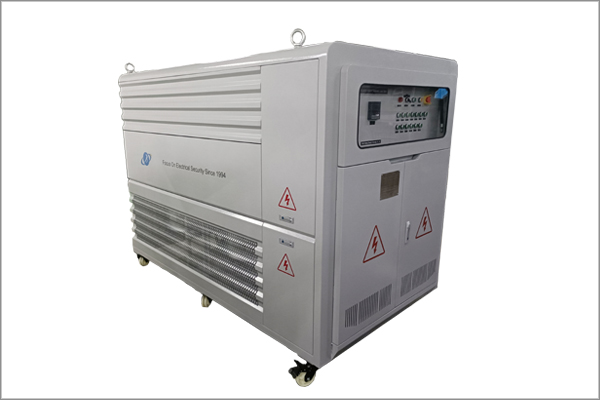What Are the Benefits of Load Bank Testing?
Time:2024-07-02
Load bank testing is a vital component of the maintenance and optimization process for power generation systems, including diesel generators, gas turbines, and renewable energy sources like solar and wind farms. It simulates the actual load that these systems would encounter during operation, allowing for a comprehensive evaluation of their performance, reliability, and efficiency. Here are the key benefits of load bank testing:
1. Ensures Reliable Performance Under Stress
One of the primary advantages of load bank testing is its ability to expose potential issues with a power generation system under high stress conditions. By simulating the full load capacity of the system, load bank testing reveals weaknesses in the equipment, such as overheating, voltage fluctuations, or inadequate cooling, before they can cause failures during actual operation. This ensures that the system is reliable and can withstand the demands of real-world applications.
2. Verifies System Capacity and Efficiency
Load bank testing provides accurate measurements of a system's capacity and efficiency. It allows operators to determine the maximum power output the system can deliver and how efficiently it converts fuel into electricity. This information is crucial for capacity planning, ensuring that the system can meet the energy demands of the facility or grid it serves. Additionally, identifying inefficiencies during testing can lead to cost savings through targeted maintenance or upgrades.
3. Improves Maintenance Schedules and Strategies
Regular load bank testing can help refine maintenance schedules and strategies. By identifying wear and tear patterns, operators can anticipate when components are likely to fail and schedule maintenance accordingly. This proactive approach minimizes downtime and reduces the risk of unexpected failures. Furthermore, load bank testing can reveal the effectiveness of previous maintenance efforts, allowing for continuous improvement in maintenance practices.
4. Ensures Compliance with Regulations and Standards
Many industries and regulatory bodies require regular load bank testing to ensure compliance with safety, reliability, and emissions standards. By performing these tests, organizations can demonstrate their commitment to quality and safety, protecting their reputation and avoiding potential fines or penalties. Load bank testing also provides documentation of system performance, which can be useful in case of insurance claims or disputes.
5. Optimizes Fuel Consumption and Emissions
Load bank testing can help optimize fuel consumption and reduce emissions by identifying operating conditions that maximize efficiency. By running the system at various loads and monitoring its performance, operators can determine the optimal settings for fuel injection, ignition timing, and other parameters. This not only reduces operating costs but also minimizes the environmental impact of the power generation system.
6. Enhances Emergency Preparedness
For critical infrastructure, such as hospitals, data centers, and emergency response centers, load bank testing is essential for ensuring emergency preparedness. By simulating power outages or grid failures, operators can verify that the backup power generation system will perform as expected, providing a reliable source of electricity during times of crisis. This gives peace of mind to stakeholders and ensures that critical operations can continue uninterrupted.
7. Supports Continuous Improvement and Innovation
Finally, load bank testing supports continuous improvement and innovation in power generation systems. By regularly testing and evaluating the system's performance, operators can identify opportunities for upgrades and modifications that can enhance its reliability, efficiency, and environmental impact. This feedback loop encourages a culture of innovation and allows for the adoption of new technologies and best practices.
In conclusion, load bank testing offers numerous benefits for organizations that rely on power generation systems. From ensuring reliable performance under stress to supporting continuous improvement and innovation, load bank testing is a vital tool for maintaining and optimizing these critical assets.
News Recommendation
-
 2024-09-11
2024-09-11TRIUMPH LOAD EXHIBITING AT Enlit Europe 2024 -BOOTH 7.H08
-
 2023-04-21
2023-04-21TRIUMPH LOAD EXHIBITING AT DATA CENTER WORLD GERMANY 2023-BOOTH F909
-
 2023-04-06
2023-04-06TRIUMPH LOAD EXHIBITING AT ELECTRIC POWER TECH KOREA 2023 – Booth G109
-
 2022-05-05
2022-05-05What is the role of ac load bank for power supply?
-
 2022-05-05
2022-05-05What is the role of the load bank?


